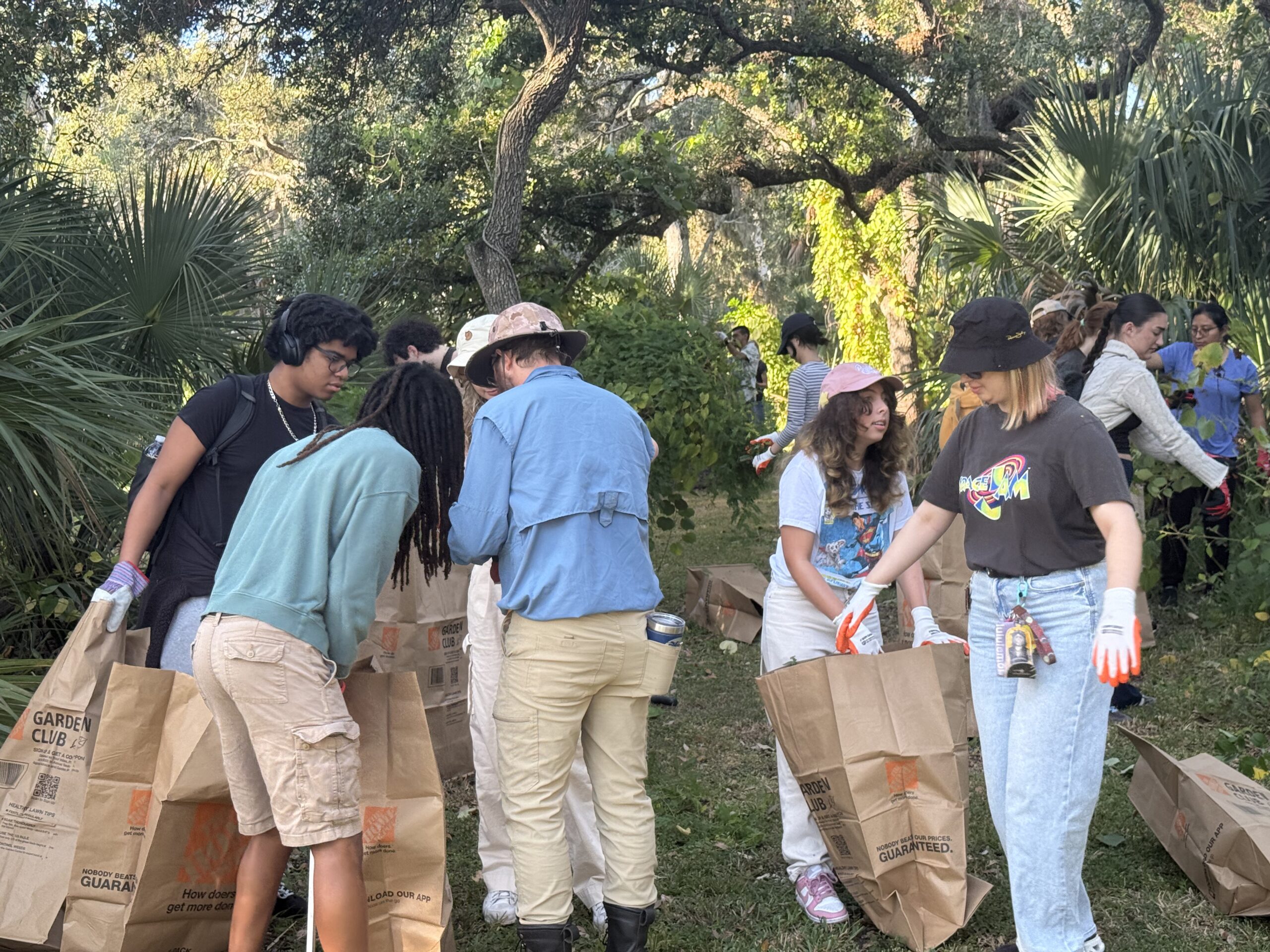For students in Sean Patton’s biodiversity classes, their everyday surroundings become an ecological wonderland.
Patton, a field scientist, restoration professional, and one of Ringling College’s Subject Matter Experts, takes students outside of the classroom to learn face-to-flower about the environments around them—whether it’s the landscaping on campus, the wildflowers along the side of the road, or the greenery growing wild in local parks. More than just identification, the goal is to learn about the interconnectedness of species, the effects of invasive flora and fauna, and the ways students can affect even a small patch of earth for the better.
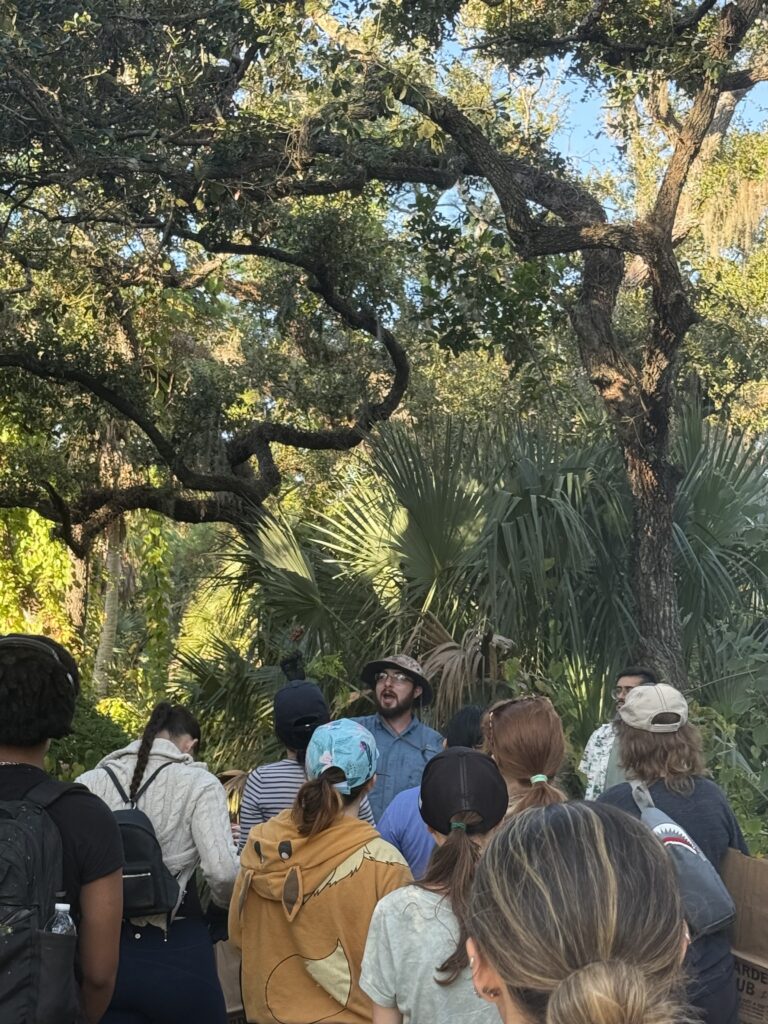
In addition to his campus strolls, Patton leads six to eight accessible field trips per semester to local parks, including nearby North Water Tower Park and The Bay, as well as northwest Bradenton’s Robinson Preserve.
The trips usually involve hands-on projects like removing invasive species or planting trees, demonstrating in real-time the difference students can make. (Field trip participants earn an automatic A toward 20% of their grade.)
“I just kind of wanted to get active, be out in the environment,” said Sebastien Vaughn ’28, Film, during a recent field trip to North Water Tower Park to remove invasive air potato plants. “When we do [other] classes, we’re just kind of stuck doing stuff at a desk. We rarely get outside, and this is nice because we get to see nature and impact nature.”
Even outside of class, Patton’s students are encouraged to be observant. One-fifth of their grade involves using the iNaturalist app to identify 100 species over the course of the semester, whether they’re here in Sarasota, back at home, or anywhere else in the world.
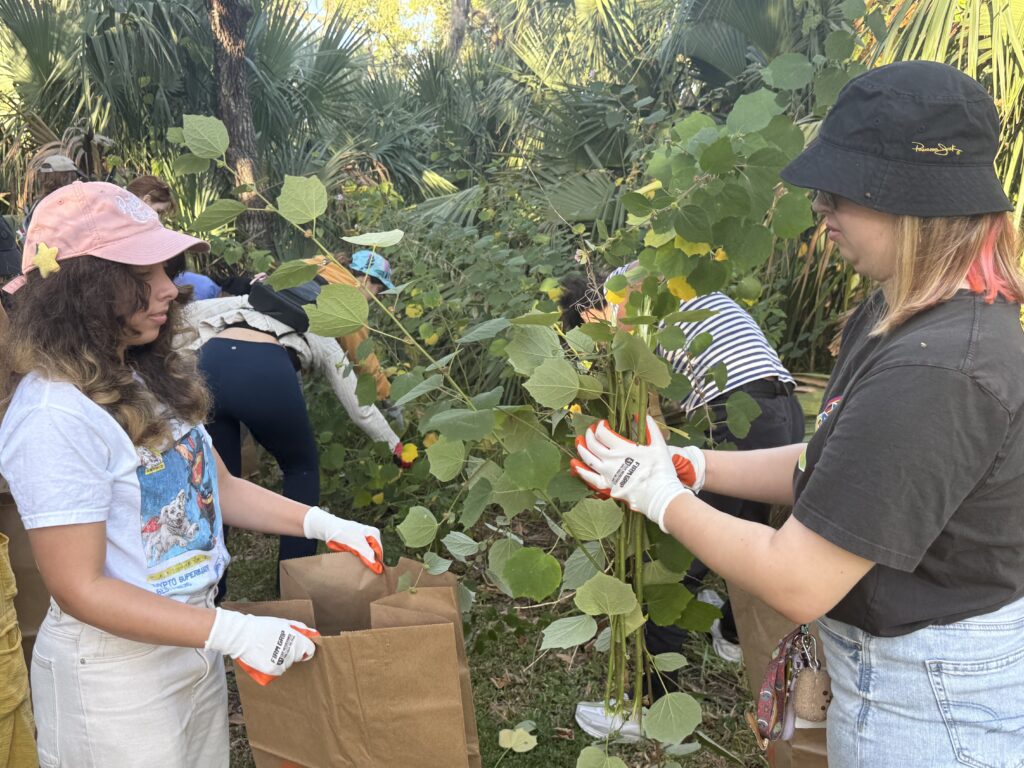
For their final project, assigned on the first day of class, students must use their art to address issues related to biodiversity. The assignment has yielded some scientifically significant works, some of which have been published in naturalist magazines.
For instance, due to Patton’s connections in the scientific community, classes are sometimes exposed to newly discovered species. “I’ve had several students draw plants that have never had art of them before,” said Patton.
Patton also owns environmental consulting firm, Stocking Savvy, which uses ecological principles to restore and manage native Florida ecosystems. He’s been able to include his classes in projects that benefit the College in more ways than one.
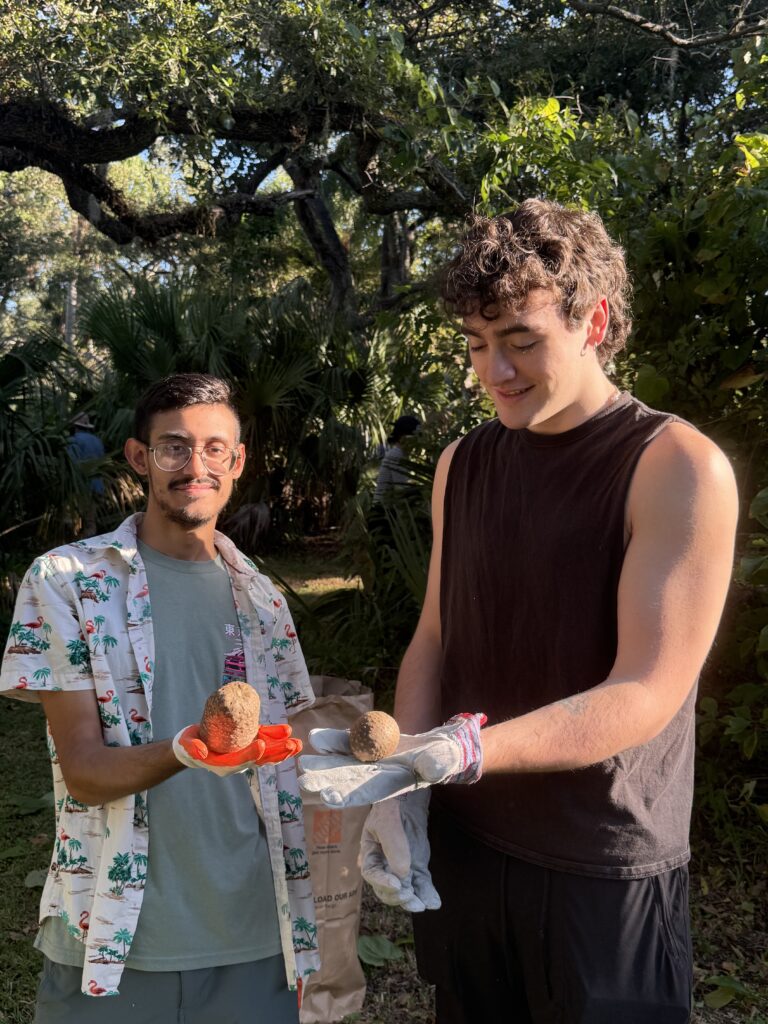
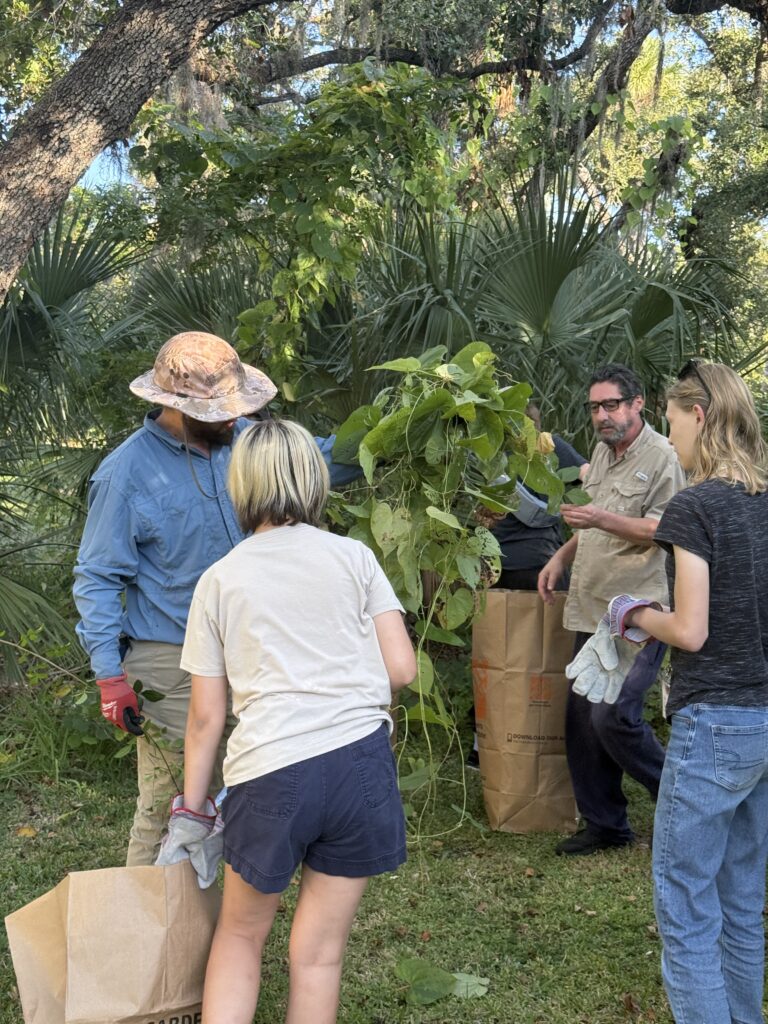
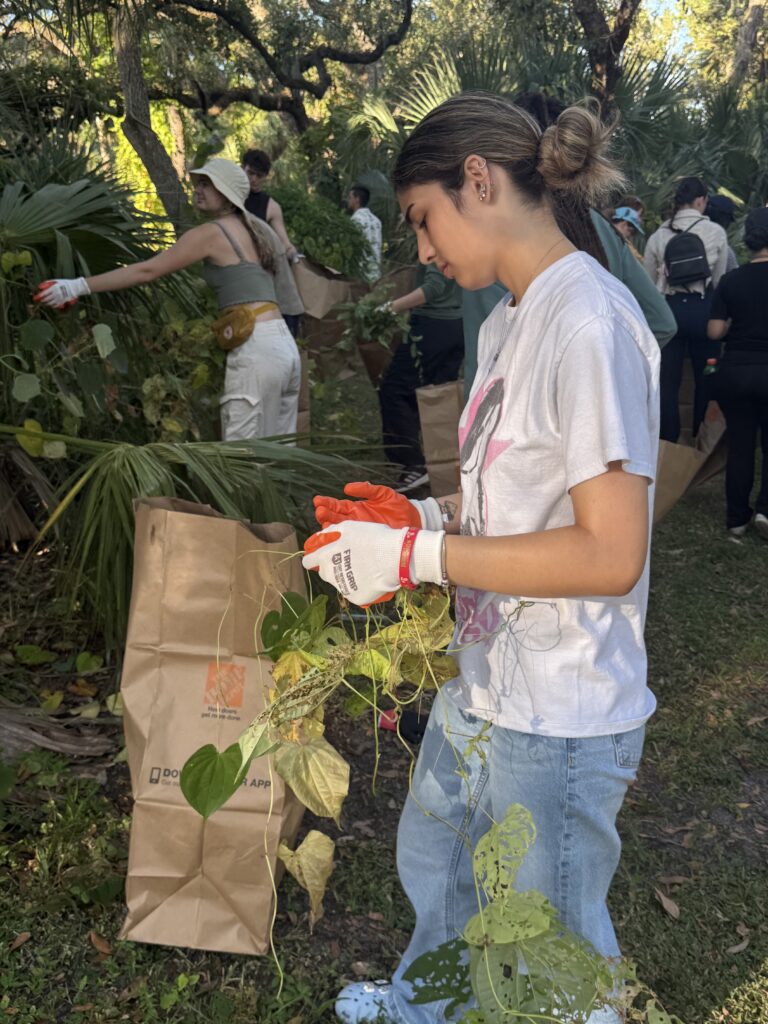
“Most schools don’t think about their maintenance department, and maintenance departments also tend to be the lowest funded,” he explained. “So, by having the students design a landscape on campus that maintenance would have had to redo anyway, it saves [the College] design time. And we install it, too. They just have to take care of it afterwards. And because maintenance sets the parameters, and they pick the winning design, we know they’re going to be fine taking care of it.”
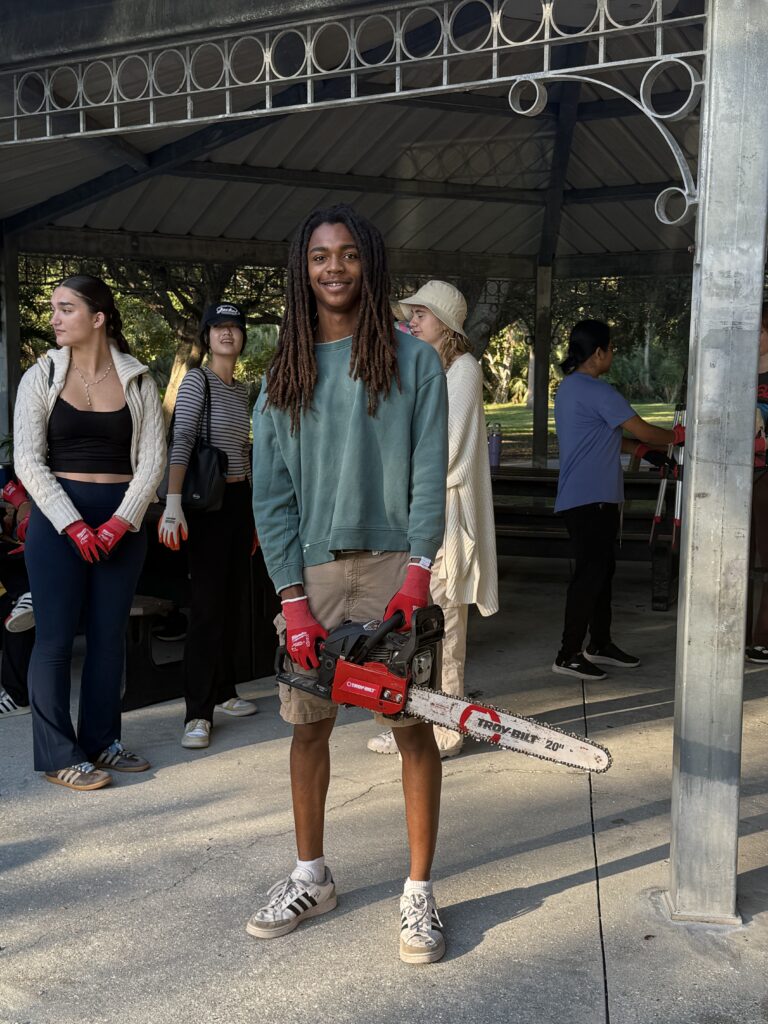
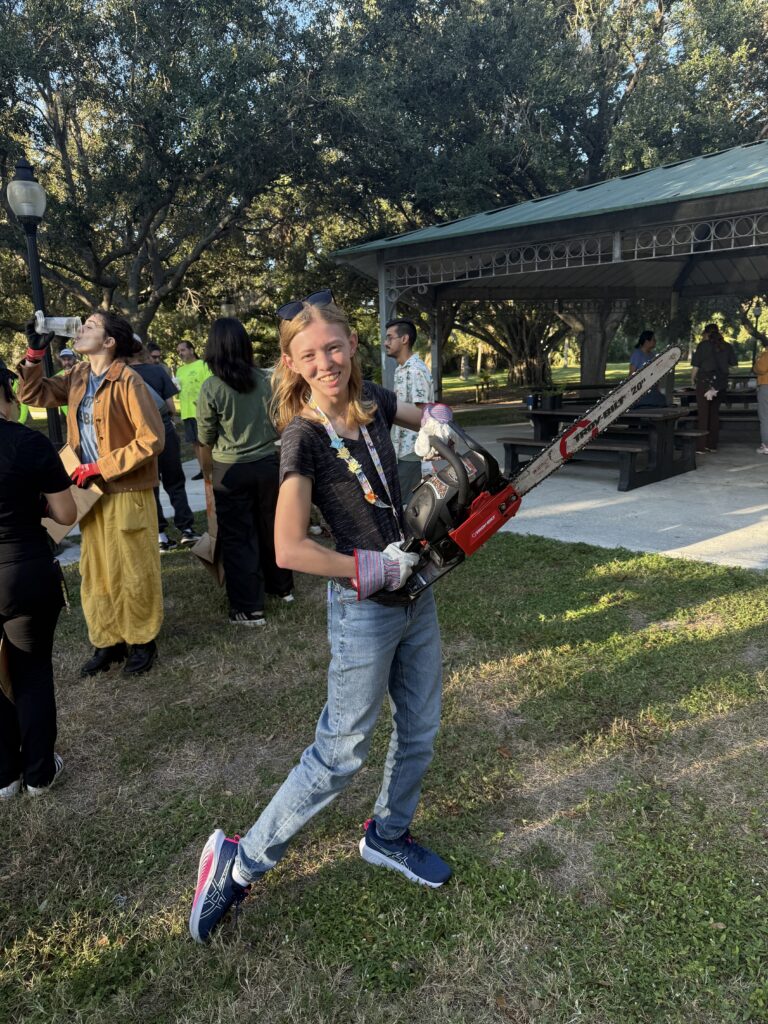
His next class project will be the installation of an on-campus bat house. “It’ll pull bats out of all the buildings, so that’s actually going to lower the chance of bat encounters,” Patton said. “They’ll eat mosquitoes and moths all over campus, including those annoying little moths. We’ll have like an hour each night where we’ll see thousands and thousands of bats pour out.”
Students ultimately come away with a new appreciation for the interconnectedness of nature and the ways that knowledge can elevate their work.
“We get to go out and see all of the creatures,” said Rebecca Peitz ’27, Computer Animation. “And I think it’s helpful to my major because obviously you have to design environments and that kind of stuff. Being in nature and learning about why things happen and why they’re there, it gives you a more detailed relationship and knowledge as you’re constructing and reconstructing those environments.”
Sean Patton is an expert in Florida ecology, habitat restoration, aquatic landscaping, invasive species management, science education, butterfly gardening, and Florida native landscaping with a focus on aquatic ecosystems.
Ringling College’s faculty and staff are practicing artists, designers, industry leaders, and educators on the cutting edge of their fields. Learn more about Ringling College’s Subject Matter Experts on our website. Here, you will find distinguished experts on a diverse range of topics, from West African textiles to macroeconomics to the history of Sarasota.
Sign up for our newsletter to get the latest Ringling College news in your inbox.
Contact:
Office of Marketing and Communications
communications@ringling.edu
941-309-4008


